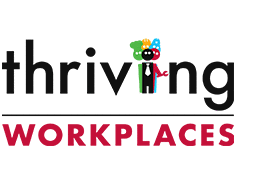
15 Jun Why Better Mental Health is Good for Business
When I was 41 I almost had a breakdown.
As the head of a busy housing department I remember standing up in front of a room full of my staff and feeling like I wanted to faint. I remember getting horrible palpitations, wondering if I was having a heart attack and most days I was so washed out, I had no enthusiasm to do anything, but sit in front of the telly drinking two or three glasses of wine, not wanting to even talk to anyone, too jaded to be the dad and husband I had intended
Most of all, I remember trying endlessly to improve my situation, but inevitably ending up back where I started, asking myself how I had lost my way….again!
I also recall very clearly the exact day I’d had enough. On holiday in France with my family, irritable, unable to relax properly and not sleeping, I swore to myself things would have to change.
It’s not easy though to change just like that, just retire, go off adventure cycling, or open that café in the lake district! Often we have a life, mortgage, roots in a community and other people relying on us.
And anyway, work should be good for you, a positive aspect of your life that boosts self-esteem wellbeing and gives you purpose. Certainly, data would suggest mental health problems are much more prevalent amongst the unemployed.
My story, sadly, isn’t unusual. In 2015/16 stress accounted for thirty seven percent of all work related ill health cases and forty five percent of all working days lost due to ill health, according to Health and Safety Executive data. In addition, according to a Mental Health Foundation study, two thirds of people in the UK have experienced a mental health problem.
Not only is that a modern-day tragedy, but the ever-increasing prevalence of mental health issues at work is also significantly affecting business effectiveness and performance.
Sectors with the very highest prevalence of stress such as caring professions like social care and nursing are seeing an unprecedented loss of talent from their industries. For example, according to Health Education England, the proportion of nurses and midwives leaving the NHS has been rising every year since 2011-12, increasing from 7.7% to 8.6% by 2014-15. Lack of supportive working conditions was given as a key reason.
So, what can we do?
Increasingly I get the sense that many of us have given up expecting work to be a positive experience and have instead just accepted the rest of our career is likely to be as much of a struggle as it has recently become.
Individually, in my view, we need a change of mindset. Firstly, we must dream of better. Don’t accept that poor mental health is inevitable, there is always a better way! I changed my career, but more importantly changed my outlook on work and value work using the currency of wellbeing and job satisfaction, rather than financial reward and status.
Extra holidays, bigger houses and pampering days, in my experience, will not fix the problem in the long run.
For Employers, like many leading modern global companies such as Google, or Johnson and Johnson, you need to start seeing the business benefits of authentically treating the health and wellbeing of your workforce as a priority.
Just doing the bare minimum like applying absence management policies more rigorously, may improve your sickness absence data, but won’t change the root causes of the mental health issues that work is contributing to. Like squeezing a balloon, when we press down on one end, the other end of the balloon bulges out with a rise in presenteeism, in the other words, people being unwell whilst still at work.
Short term measures like these are just like ‘doing the wrong thing righter’ if your main approach to workplace health and wellbeing doesn’t change at a fundamental level.
Instead, we must do the ‘right thing’ and that starts with taking the health and wellbeing of ourselves and our colleagues as a legitimate corporate goal, rather than just something that is not in our remit, or not a priority.
By adopting this new philosophy, not only can organisations make a significant difference to improving the mental health and wellbeing of their workforce, but they will also get an edge over their competitors, as retention, recruitment, productivity and performance improves.
Now my life has changed completely and rather than suffer distressing stress symptoms, I feel great and look forward to going to work most days.
There is always a better way.
If you have a passion for health and wellbeing and believe people and organisations would reap significant benefits from more actively promoting it, including better mental health, being happier, having more energy, cutting costs and being more effective in life and work, then contact us for free help.


